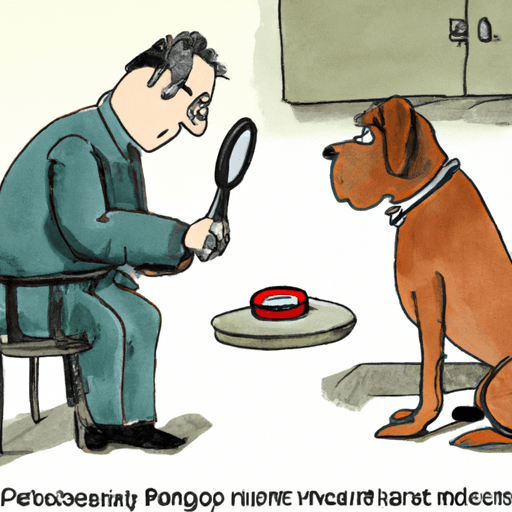As a dog owner, seeing blood in your dog’s stool can be alarming. It can be a sign of various conditions, from diet changes to serious health issues. Here are some possible reasons why your dog’s poop might have blood and what you could do about it.
1. Dietary Changes or Upsets
If you’ve recently changed your dog’s diet or they’ve eaten something unusual, it could result in bloody stool.
- New Food: Introducing new food too quickly can disrupt your dog’s digestive system. It’s always best to gradually introduce new food over a period of a week or so.
- Foreign Objects: Dogs are curious creatures, and they often eat things they shouldn’t. Foreign objects can irritate the digestive tract, causing bloody stool.
- Food Allergies: Some dogs are allergic to certain types of food. This can cause inflammation in the digestive tract, which can result in bloody stool.
2. Parasites
Parasites are a common cause of bloody stool in dogs.
| Parasite | Symptoms | Treatment |
|---|---|---|
| Hookworms | Diarrhea, weight loss, anemia | Antiparasitic medications |
| Whipworms | Bloody diarrhea, weight loss | Antiparasitic medications |
| Giardia | Diarrhea, vomiting, weight loss | Antiparasitic medications |
3. Infections
Various bacterial, viral, or fungal infections can cause bloody stool in dogs.
- Parvovirus: This is a highly contagious and life-threatening viral disease in dogs, especially puppies. It can cause bloody diarrhea, vomiting, and fever. Vaccination is the best prevention.
- Salmonella: This bacterial infection can cause diarrhea, vomiting, fever, and sometimes bloody stool. It’s usually contracted from contaminated food or water.
4. Inflammatory Disorders
Inflammatory disorders like Colitis or Inflammatory Bowel Disease (IBD) can cause bloody stool in dogs. These conditions cause inflammation and damage to the dog’s digestive tract.
5. Serious Health Issues
Bloody stool can also be a symptom of more serious health issues, such as cancer or coagulation disorders. If your dog is also experiencing other symptoms like lethargy, loss of appetite, or weight loss, it’s crucial to consult your vet immediately.
Frequently Asked Questions
Q: Should I immediately take my dog to the vet if I see blood in their poop?
A: If it’s a small amount and your dog seems fine otherwise, monitor your dog closely. However, if the bloody stool persists for more than a day or if your dog has other symptoms, contact your vet immediately.
Q: Can stress cause blood in a dog’s stool?
A: Yes, stress can cause digestive upset in dogs, which can lead to bloody stool.
Q: How is the cause of bloody stool diagnosed in dogs?
A: Your vet may perform a variety of tests, including a fecal examination, blood tests, x-rays, or endoscopy.
Remember, it’s always better to be safe than sorry. If your dog has bloody stool, it’s best to contact your vet to discuss the situation. They can guide you on the best course of action based on your dog’s specific situation.



